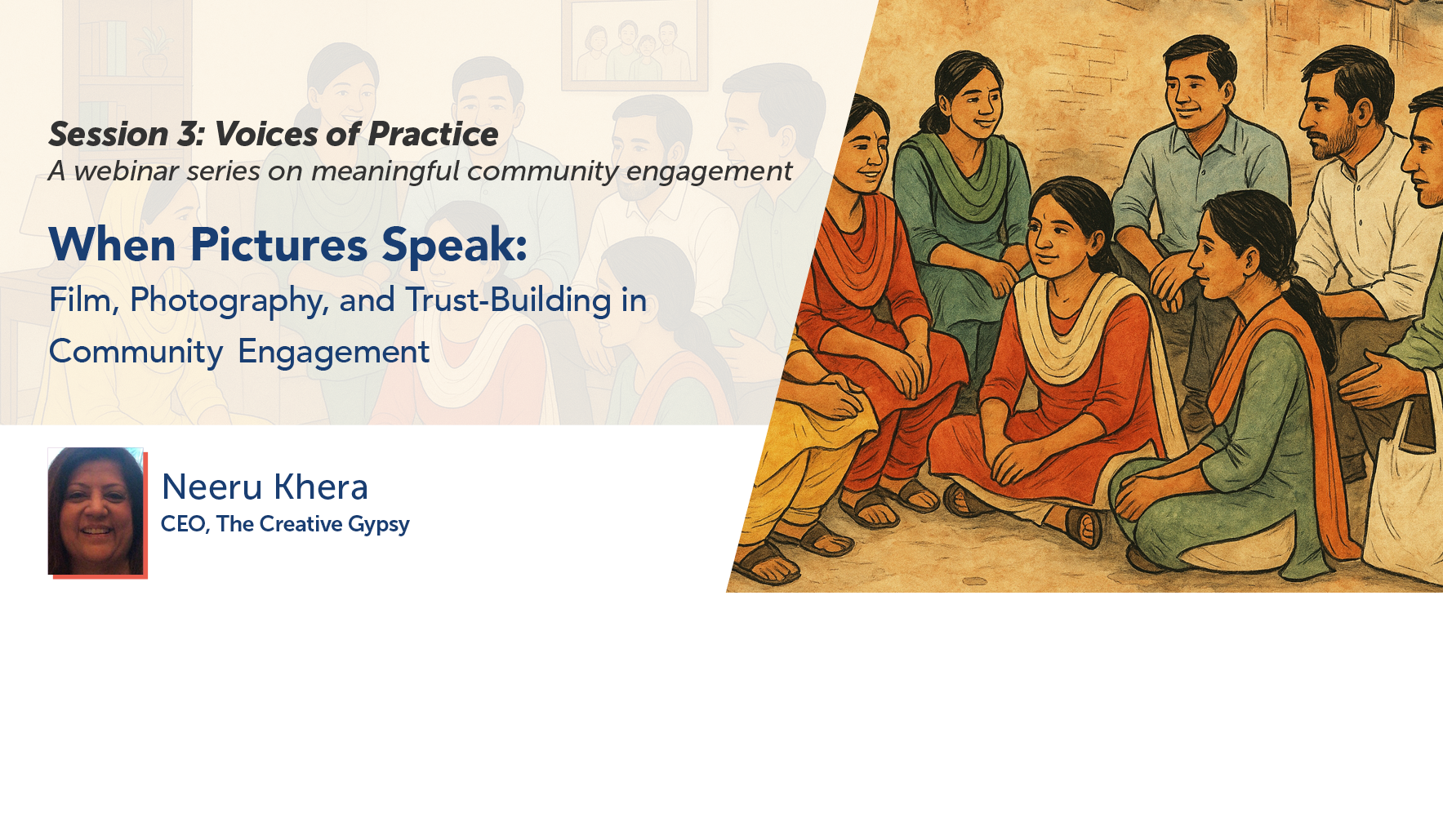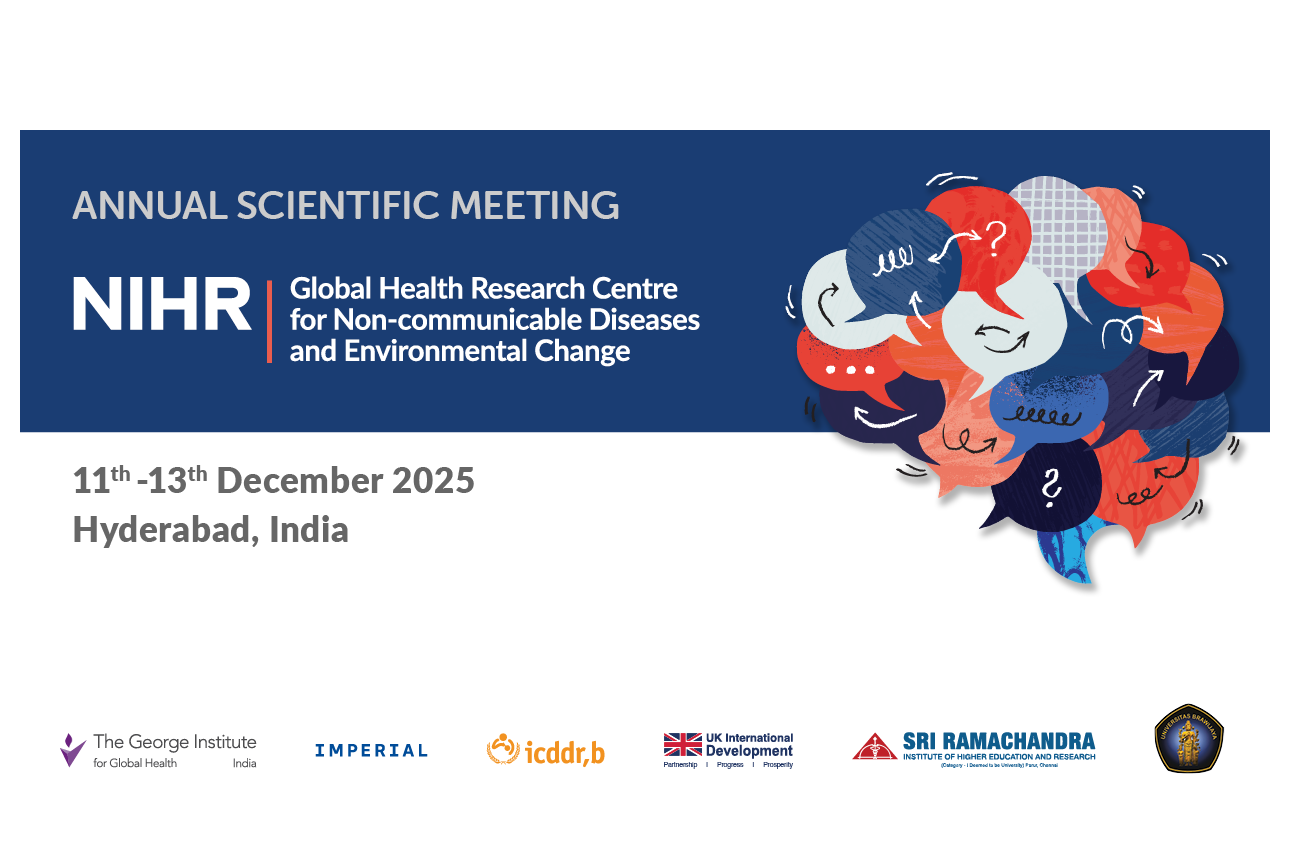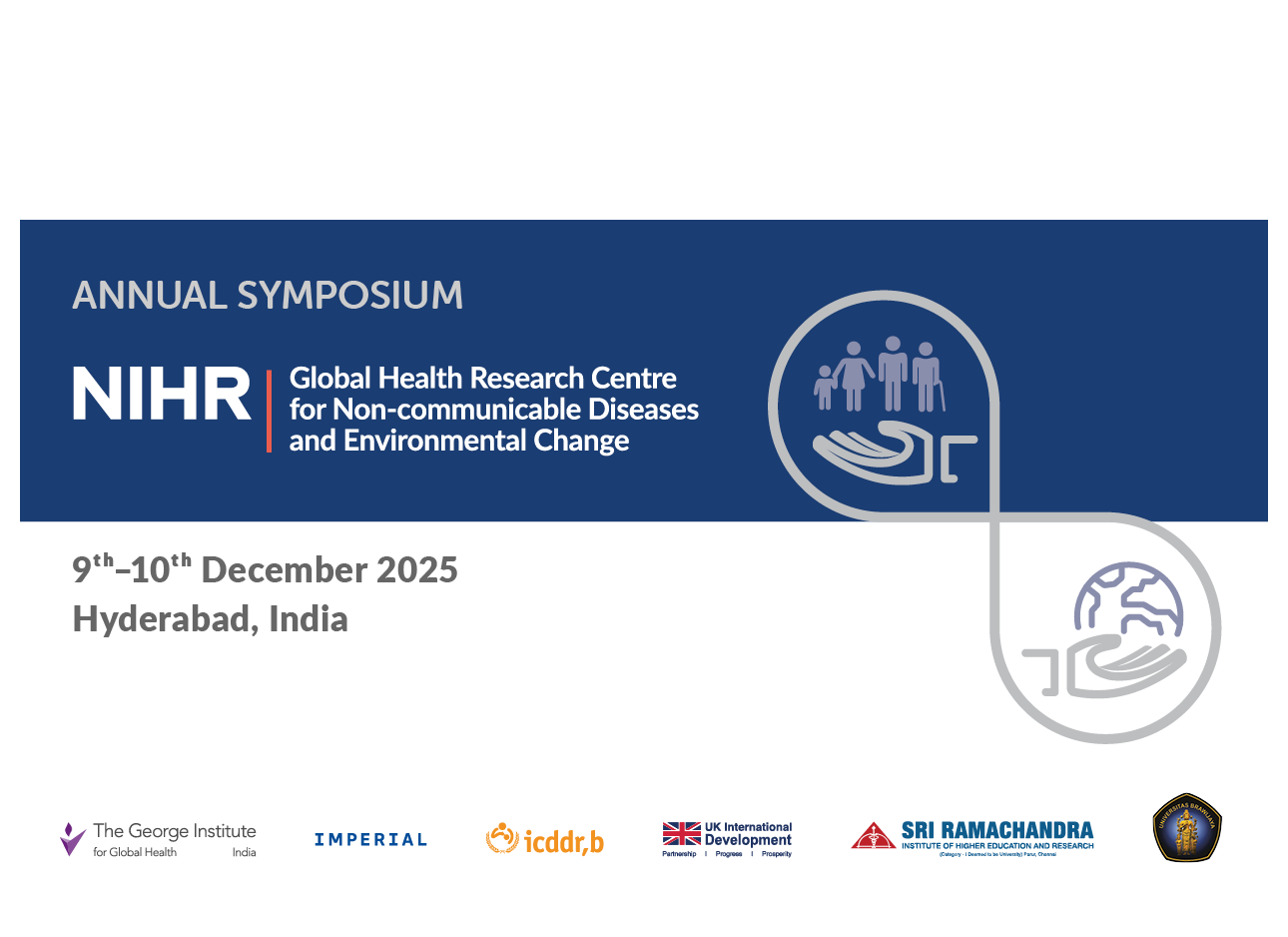The climate crisis—no longer a new threat—affects everyone, rich and poor alike. Yet, it is the low- and middle-income countries that suffer the most severe consequences. Limited resources and infrastructural support impede LMICs abilities to adapt and mitigate the impact of climate change. It affects adversely the nations’ capacity to restrain the worsening social determinants of health.
Despite having the most experiences to share and stories to tell, they often seem to have the least to say. Owing in large part to a lack of capacity in the research space, which has led to a status quo of muted voices ripe with unheard and untold stories. It was not very long ago, that funding organizations tried to break the status quo and wove into their funding calls a mandate to dedicate a substantial amount in large projects towards research capacity strengthening. Often these days, large-scale projects are based on a research consortium model, where multiple research organizations from various facets come together and pool their resources to not only work on a complex research problem but also use these resources to strengthen research capacity.
Lucrative and beneficial as it may sound, applying the concepts of the West to the South has neither been easy nor extremely rewarding. LMICs face certain unique challenges best navigated by professionals working in LMICs. So, who better than an LMIC health management professional at the frontlines of strengthening research capacity under a multi-country health research centre to dive in, burst the bubbles of myth, and share her perspective on the issue?
Does Research Capacity Strengthening need to be managed – The What and The Why
Research capacity strengthening is often described as “enhancing the ability and resources of individuals, institutions and systems to undertake, communicate and use high-quality research efficiently, effectively and sustainably”1. However, researchers often find it difficult to balance the dual goals of managing a research project and overlook the management of the research capacity-strengthening activities. Thus, a need arose to embed a cadre of professionals to step in to help implement and monitor changes in the quality and speed of these initiatives.
More often than not, researchers are seen balancing both sides of the scales: Coordination and Research. A tight rope walk which calls on reserves of time and energy which could have been utilized on focused research. Take an example of a film set, if the training course faculty or the main actor, is also the cinematographer, dress designer, choreographer, director as well as the producer, isn’t the acting going to be impacted?

Similarly, for research capacity-strengthening activities, there is a pressing need for a dedicated workforce of fully equipped and supported, technology-driven RCS managers to seamlessly manage the planning, strategizing and implementation of these capacity-building activities.
Addressing the elephant in the room
Regrettably, the need for this cadre is neither highlighted nor acknowledged by even the most illustrious institutes in LMICs. Most institutions lack any policy for institutional strengthening and governance. And, where such policies are present, the need for trained managers to sustain these activities aren’t recognised within the policy.
For large-scale projects involving multiple stakeholders, the research capacity strengthening activities are both multi-faceted and nuanced. The role of an RCS manager, therefore, requires going beyond just organizing, planning and managing meetings or training sessions. Liaising with stakeholders, the trainers, the students, the support team, and building rapport with the cohort and academic community becomes crucial for the success of large multinational programs. It encompasses activities that ranges from providing inputs on designing and delivery of a course curriculum (logistics expertise put to use!) one day, to gently reminding & motivating academy members to participate in events (artful diplomacy to the fore!) the next.
Whether they be baby steps or long strides, an RCS manager ensures that the various stakeholders and the project initiatives keep moving forward in alignment with each other and keep growing.
Learnings from the ground
A vital component of my experience has been the increasing use of technology as a tool to enhance the delivery of research capacity strengthening. Few experiences are as satisfying as sitting in a classroom and listening to a veteran researcher speak about the nuances of conducting a focus group discussion. However, limited resources and geographical distances can be challenging.
- Adoption of technology
The Pandemic brought with it seismic changes in operational processes across organisations around the world. Not the least of which was the adoption of technology to teach and educate beyond borders. Bridging geographical and knowledge gaps and saving resources. With a project like ours, spread across multiple countries, running six courses (each running 3 months long), online teaching programs and technologies have helped us create an enriching experience. However, the cherry on the cake was the use of a learning & development management system whose adoption has led us to the development of a well-oiled machinery and opened doors to options like creating an online repository of study materials, automated certification and a one-stop platform for assignment submission, which a few years back were logistical nightmares for any training manager.
It would be unjust to say that there has been a complete flip since the advent of these new tools. Researchers are still getting familiar with the concept, there are still hesitations, but we are steadily getting there. A little flexibility goes a long way!
- Templates & SoPs all the way
For someone like me, who has been a disorganized functionary throughout my academic years, the tables had to be turned when I reached the other side. If someone tells you, that management is about going with the flow-, check the size of Pinnochio’s nose. One cannot manage a multi-country project, without establishing processes, and where there are processes, there are and should be templates & SoPs. Identifying requirements and responsibilities is crucial. Reliability and accountability are key tenets an RCS manager learns early. (Never underestimate the importance of a good mentor!) Creating concise documents clearly outlining these is a life saviour when navigating complex projects. However, one has to be the torchbearer anticipating situations A & B and sometimes even C, even before they completely unfold, so always be open to changes. Adaptability is key!
- Understanding the nuances of MEL & reporting
Since the domain is relatively new for LMIC managers or public health professionals turned RCS managers, there have been some trials and error methods. Almost all of which have presented new learnings and fresh perspectives. Communication has been a big part of managing these activities along with presenting this work to leadership which has also been an integral part. Bringing with it, learnings and evolution in the nuances of monitoring & reporting. The complex beast of “Monitoring & Reporting” can seem untameable if not tamed accordingly. I cannot begin to stress the importance of the development of tracking sheets (both for planning & completion of activities) which is immensely helpful not only in monitoring the progress of the project/programme but also in identifying and understanding emerging patterns to employ corrective measures whenever necessary. In short, these act as roadmaps to help you see the path and destination both immediate and in the future.
- Promoting internal collaboration

At the NIHR-GHRC we take pride in the way we develop our trainings and courses. Several senior researchers from the LMICs take the lead in curating a majority of the training courses and workshops, rather than solely relying on expertise from elite or remote institutions to conduct the training. Training more than 100 participants across 3 countries (with none of them having their first language as English!) in a single year via 6 training courses was an enriching experience. Not only were they able to address the queries of the cohorts more succinctly given their first-hand experiences of working in LMICs, but the discussions were also more practical owing to their familiarity with the geopolitical understanding of these countries.
In the same year, we went beyond just the domain of online learning and organized a six-day in-person workshop in Indonesia, with 50 participants from Indonesia, Bangladesh and India. All LMICs. The event was a huge success and allowed the Early Career Researchers to interact with each other, network, share ideas and co-learning has been an exceptional experience.
Read our blog for more details on the event.
The Future of Research Capacity Strengthening Managers…What’s next?
The heart of research capacity strengthening management lies in a thorough and validated needs assessment. Unless the goal is set right, effective management takes a back seat. After all, an arrow needs a mark to land true. Once the RCS manager is clear on what is needed, planning & implementation can follow.
There is a need to understand and value the local context, language barriers and technical capacities while designing & delivering any RCS activity. While enhancing research capabilities in such contexts is complex, it is also extremely rewarding. By employing a nuanced understanding of local conditions, strategic planning, and a collaborative approach with local stakeholders, RCS managers can be the drivers of change and help address the unique needs of the researchers that might emerge long after the needs assessment is done.
Language can at times prove a barrier and one mustn’t assume that one’s audience knows everything. One must never forget that – handholding must be the centrefold of any RCS management in LMICs.
——————————————————————–
This blog has been written by Aakanksha Mehrotra.
About the author: Aakanksha Mehrotra is the Research Capacity Strengthening (RCS) manager at the NIHR (Global Health Research Centre for Non-communicable Diseases and Environmental Change). A trained dentist, Aakanksha found her calling in Public Health management. As the RCS manager at the centre, she plans and manages training courses to enrich the resources and capabilities of early and mid-career researchers, and liaises with other RCS leads from partner institutes to implement the centre’s RCS strategy. Aakanksha is also actively involved in the monitoring & evaluation of RCS activities of the centre.
This research was funded by the NIHR (Global Health Research Centre for Non-communicable Diseases and Environmental Change) using UK international development funding from the UK Government to support global health research. The views expressed in this publication are those of the author(s) and not necessarily those of the NIHR or the UK government.






